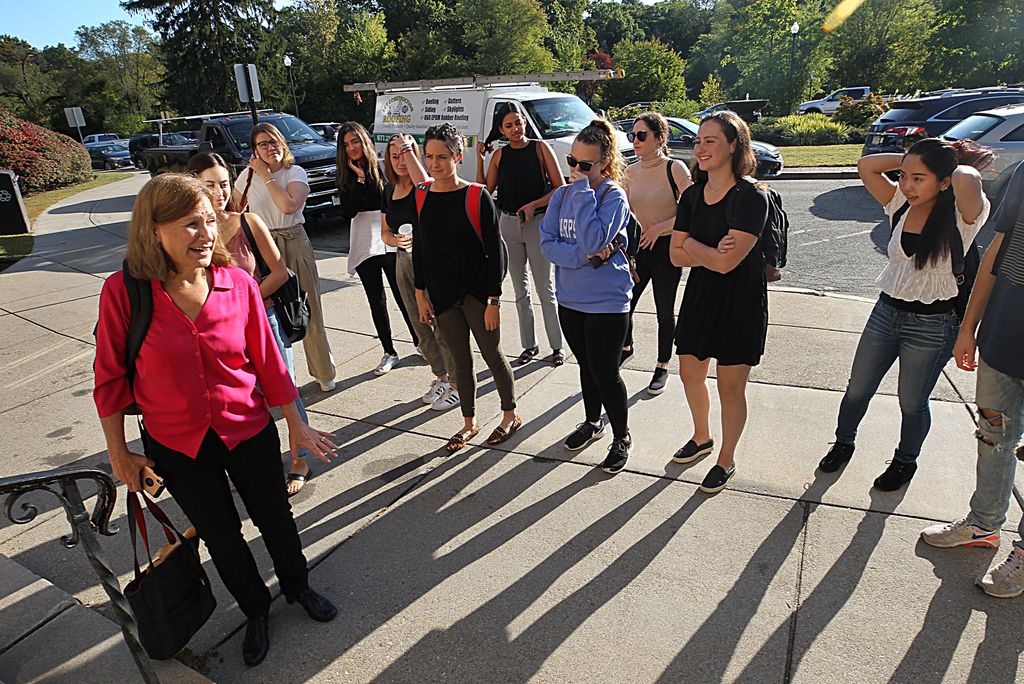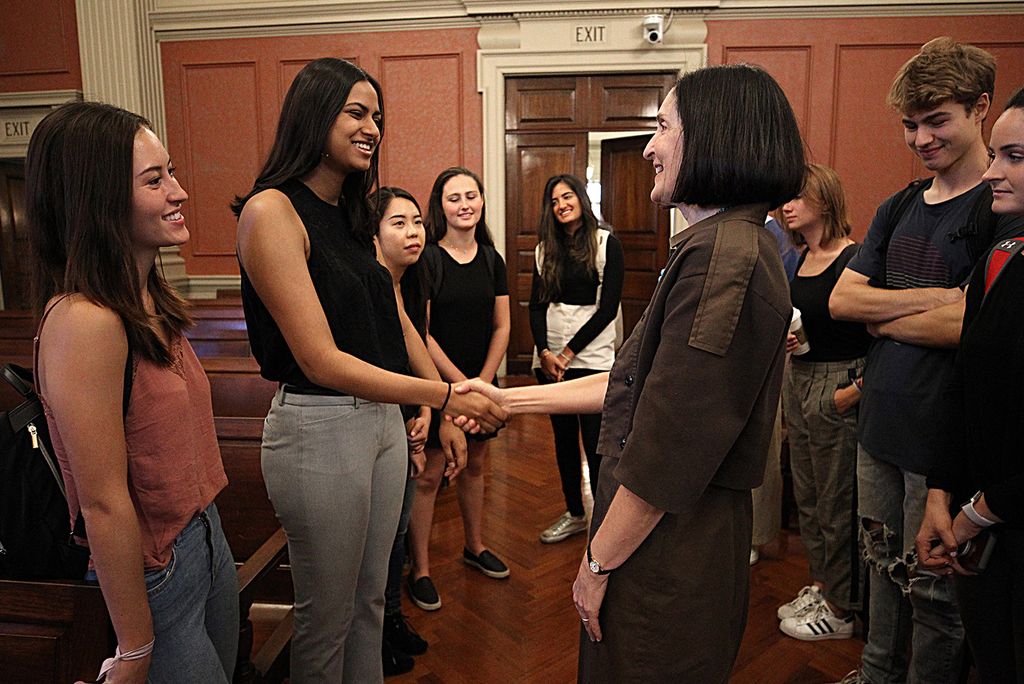Filling a Local News Void

Abby Parsons (CGS’18, COM’20) interviewed Newton, Mass., voters for the Boston Globe’s coverage of the local 2019 election. Photo by Kelly Davidson
Filling a Local News Void
COM and the Boston Globe form a community journalism partnership in Newton, Mass.
On a cold, damp November evening, Abby Parsons stood outside the Hyde Community Center in Newton, Mass., interviewing one voter after another. She asked what had brought them out for the local election, in which city council and school committee seats would be decided and housing and development were leading issues. The next day, Parsons (CGS’18, COM’20), a journalism major, shared a byline in the Boston Globe with the paper’s Newton correspondent, John Hilliard.
Parsons was one of several students who contributed to the Newton election coverage as part of a new partnership between the College of Communication and the Boston Globe aimed at finding a solution to dwindling local news coverage. According to the Pew Research Center, newspaper newsrooms shrank from 71,000 employees in 2008 to 38,000 in 2018. A University of North Carolina report found close to 1,800 US papers were closed between 2004 and 2018. Many of the surviving newspapers have been absorbed by larger companies. “They’re standardizing them,” says Gail Spector, a Newton resident and a COM adjunct professor of journalism. “They’re trying to trim them as much as possible. As a result, nobody is watching what’s going on at city halls and town halls across the country. Nobody is holding politicians accountable for how they’re spending tax dollars.”

Spector, a former editor of the Newton TAB, was part of a small group of concerned citizens who spent the better part of a year brainstorming ideas to improve news coverage in Newton. They considered establishing a nonprofit, like the web-based New Haven Independent, which has operated since 2005, or partnering with a cable access station. They also took their concerns to the Boston Globe, where editor Brian McGrory made a suggestion: Why not collaborate with a university journalism program?
From that idea, things moved quickly. In 2019, the Globe and COM agreed on a partnership, with journalism students from COM JO 210 Reporting in Depth—a required journalism course that already involved covering local news—contributing to expanded coverage of Newton. The Globe would provide students with a large platform by including stories in a weekly print section, launching a web page dedicated to Newton news and publicizing the work with a Newton-specific newsletter. COM, in turn, hired Spector to teach a section of Reporting in Depth.
Nobody is watching what’s going on at city halls and town halls across the country.
The classroom functions as a newsroom, with students pitching story ideas, professors serving as editors and, often, completed stories making their way to local media outlets. The Globe is the latest addition to that list: in fall 2019, students in the class also published work with the Brookline TAB, the BU News Service, the Cambridge Chronicle, and WGBH.
To launch the Newton program, COM students toured the city and met with Mayor Ruthanne Fuller; Globe journalists and representatives from the school committee and city council have also spoken to the class. Spector serves as teacher, mentor, and editor. “Watching them figure it out is very rewarding for me,” she says. “They’re really starting to understand the community.”

In addition to her election coverage, Parsons spent the semester working an education beat. She reported on the multimillion-dollar renovation of one elementary school and a community meeting about a school that wasn’t up to code. “Whenever I’m covering something, at least one community member tells me how excited they are for the story,” she says. “I didn’t realize the impact what you publish could have on people.” That applied on election night too. One voter, already familiar with the COM-Globe program, was thrilled to learn that Parsons was from BU. Another recognized her from the community meeting she’d covered a few weeks earlier, where Parsons was the only print journalist present. Before enrolling in Reporting in Depth, Parsons had heard it was the hardest course in the journalism program. Now, she says, “I feel like it’s the most important.”
Comments & Discussion
Boston University moderates comments to facilitate an informed, substantive, civil conversation. Abusive, profane, self-promotional, misleading, incoherent or off-topic comments will be rejected. Moderators are staffed during regular business hours (EST) and can only accept comments written in English. Statistics or facts must include a citation or a link to the citation.